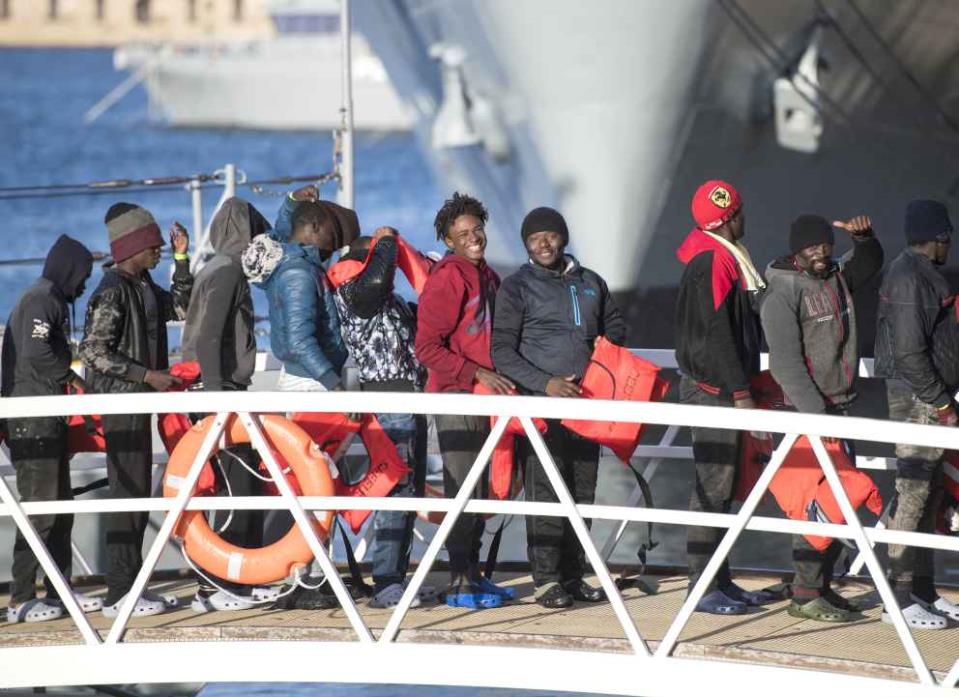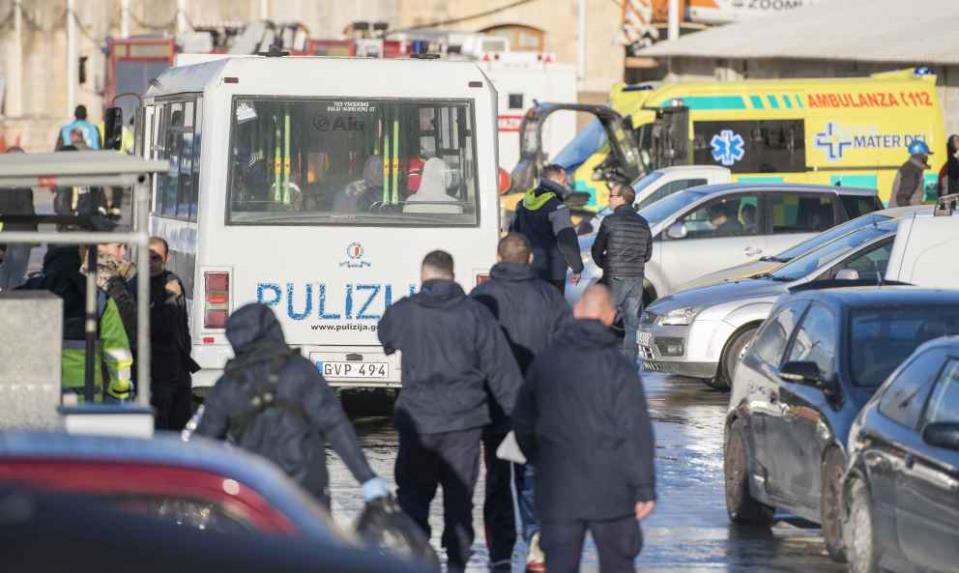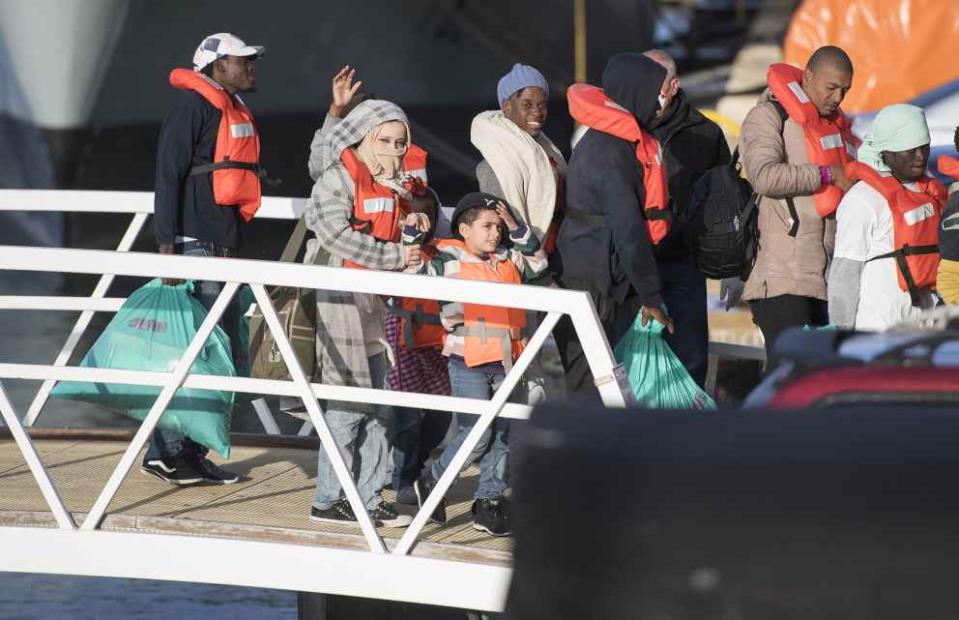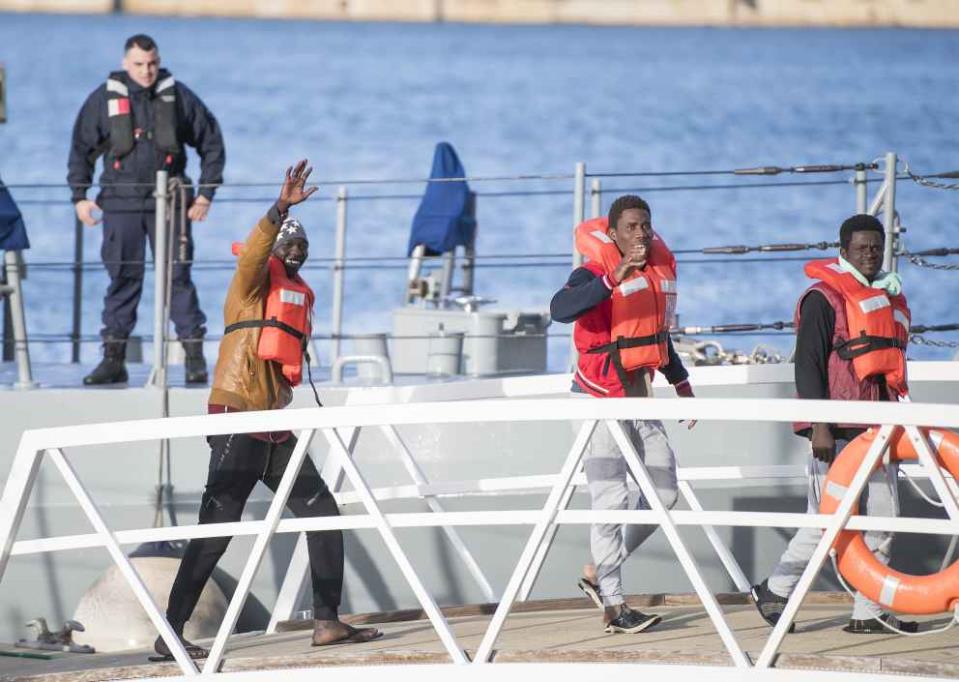Do you think the situation with Sea Watch and Sea Eye was handled well?
On the whole no, it was not handled well at all. Firstly, it is important to stress that we firmly agree with the Maltese Government that the current system is unfair and that the border member states have been left alone to deal with border patrols.
We understand the need for solidarity, and we have been calling for it since before this whole system - where people are blocked and abandoned - was put into place. We are also with the Government when it comes to trying to convince other EU member states to do more and change the current situation.
The current regime, whereby refugees are obliged to remain at the first point of entry in the EU, is unfair. It doesn't make sense, it is a burden on member states - there's a whole list of arguments you can make on why it is wrong.
At the same time, we don't feel that the unfairness of the system should be a burden for refugees to carry, because it is not of their making, but of the Government.

This is not the first time that there has been an impasse between Malta, Italy and other EU countries. Do you think that there will be a proper attempt to get a new system in place this time?
After every incident we hope it will happen, but it has been like this since 2002 when the boats first began arriving.
Many of the problems are about this lack of solidarity, that a number of member states are not helping each other; that's a big part of the problem. Another extremely significant problem is the fact that Italy and Malta continue to disagree, case-by-case, on the way they interpret Maritime Law and who should be doing what. This ongoing lack of agreement is causing all these problems - such as Italy closing its ports and Malta threatening to do the same.
From the beginning, we've been saying that Italy and Malta need to be a bit more mature. They need to sit down, accept that the disagreements are in the way they interpret their maritime law obligations, and resolve them. And resolve them not in a case-by-case way, but come up with proper procedural rules on how the two governments will deal with boat incidents, depending on how the facts emerge.
What do you think would work from a pragmatic perspective?
The problem is that the two governments interpret their legal obligations differently because countries have different legal obligations and they have never attempted to reconcile those differences.

When you have two states next to each other, both with a maritime border, and disagreeing on what to do with rescued people, then it is obviously going to cause problems. What we are telling them is to sit down, look at what is happening and come up with guidelines that will be used in every single incident.
This case-by-case approach has to stop. We cannot have the Prime Minister calling 27 other Prime Ministers and asking for help every single time there is a boat because at some point the solidarity energy is going to dry up, and people are going to remain stuck out at sea.
Have you had the opportunity to speak with the Prime Minister or Minister Farrugia?
We asked for a meeting with the Prime Minister but we have not yet had the opportunity to meet him.
With the previous administration, where the problem was the same, we did point out these points, but there does not seem to be a willingness to co-operate with Italy any more. Now it has reached the point of no cooperation because the governments are at loggerheads over these issues.
It is no longer a matter of governments disagreeing on this single issue; the level of disagreement has become so serious that it has become more difficult to reach any agreement.
What we are also very concerned about in this incident - and previous ones - is that there seems to be a trend to pick on, criminalise, penalise or in some way portray NGO activities as damaging to the bigger cause.
This is totally inappropriate, whether we are dealing with NGOs who are helping people on the ground or NGOs that are out at sea rescuing people because, ultimately, we are all driven by our human rights values and legal obligations.
Sea Watch fulfilled its legal obligation by rescuing people; it fulfilled a legal obligation by not taking them to Libya, but the government finds it easy to pick on and stigmatise NGOs because, in the public eye, they are seen as useful scapegoats.

So you do not think there is any legitimacy to the accusations that NGOs are, for example, working with traffickers?
Of course not. I am obviously speaking about the NGOs I know; I can't exclude anything, but human rights NGOs do not work with traffickers.
We try to deal with the problems created by traffickers; we try to deal with the environment within which the traffickers exist; we are definitely not profiting from it in any way.
They are ridiculous accusations, and what is worrying is that the people making them know that they are unfounded and, again, we are an easy scapegoat.
Touching on that, and because you also provide legal advice, another accusation is that migrants are being coached on how to get through the granting-of-asylum process. For example, last November the CEO of Advocates Abroad, Ariel Ricker, was recorded as saying that they do such things. Is this type of coaching common?
As I said, I obviously cannot comment on the work of every single NGO in the world and I do not exclude that there are some with shady practices because NGOs are run by human beings as well. But we can't therefore label all NGOs as being abusive and illegal just because of some sad episodes. The United Nations has had several reports of sexual malpractice, fraud, etc., but we do not therefore condemn all the work of the UN.
There is a legitimacy to some statements but we cannot use those statements to discard all the work done by NGOs, because if you look at the work done by so many NGOs in Malta, it is they that run Malta's social systems. Are we going to discard all their work and say it is all corrupt?
Another common sentiment is that Malta is too densely populated, and that this leads to a bigger strain on our social services, including NGOs. Do you think there is a limit on how many refugees can be allowed into Malta?
I would not say that there is a limit because you would come up with an equation to decide how many people the island can contain and that's a very difficult equation to come up with.
But we do admit that, yes, Malta does face challenges because of its size. It is undeniable and we have always said it. We have consistently told the EU - and every single member state - that Malta, as well as other member states, needs a European approach.
We agree that there are challenges, but just because there are challenges does not justify us behaving in an appropriate way.

With regard to the integration process, we are seeing crime in areas such as Hamrun and Marsa. Would this tie into the last answer you gave, in that this is an issue Europe has to fix as a union?
When it comes to immigration, Europe can do a lot, but ultimately you need to zoom in to the smallest level; you need to work at community level because that is where integration needs to happen.
What we have seen in Malta is that the actions of successive governments have not really fostered an environment that allows people to integrate. On the contrary, we have seen successive acts of government building walls around communities and not encouraging integration.
For example, the fact that Malta decided to put very large migrant centres in particular places was, from the first day, a very bad idea. You do not foster integration by dumping hundreds of people together in a secluded space, cutting them off from contact with the local community and treating them like social outcasts.
If you do not feel wanted, then you are obviously not going to open up and integrate.

Last March, Aditus came out in favour of abortion. Some critics have called this a double standard. How do you draw a distinction between the two?
Obviously we constantly advocate for the preservation of life, human rights, etc... But, this also means that, in certain circumstances, we understand that there are other rights as well that need to be taken into account.
When we endorsed the position of the Women's Rights Foundation which, if you look at what they are saying we are saying, it is not that Malta should fully embrace abortion with no criteria or procedures. What we are saying is that there are certain circumstances where we feel that abortion should be legalised, for example, in the case of the premature death of a foetus.
In those circumstances, based on experiences we have had with the community, we think abortion should be allowed. This is because it is the right of the mother to be free from the horrible and inhumane experience of having to carry inside her something that is not going to live.
Photos of Neil Falzon by Alenka Falzon
Photos of the asylum seekers by Rene Rossignaud